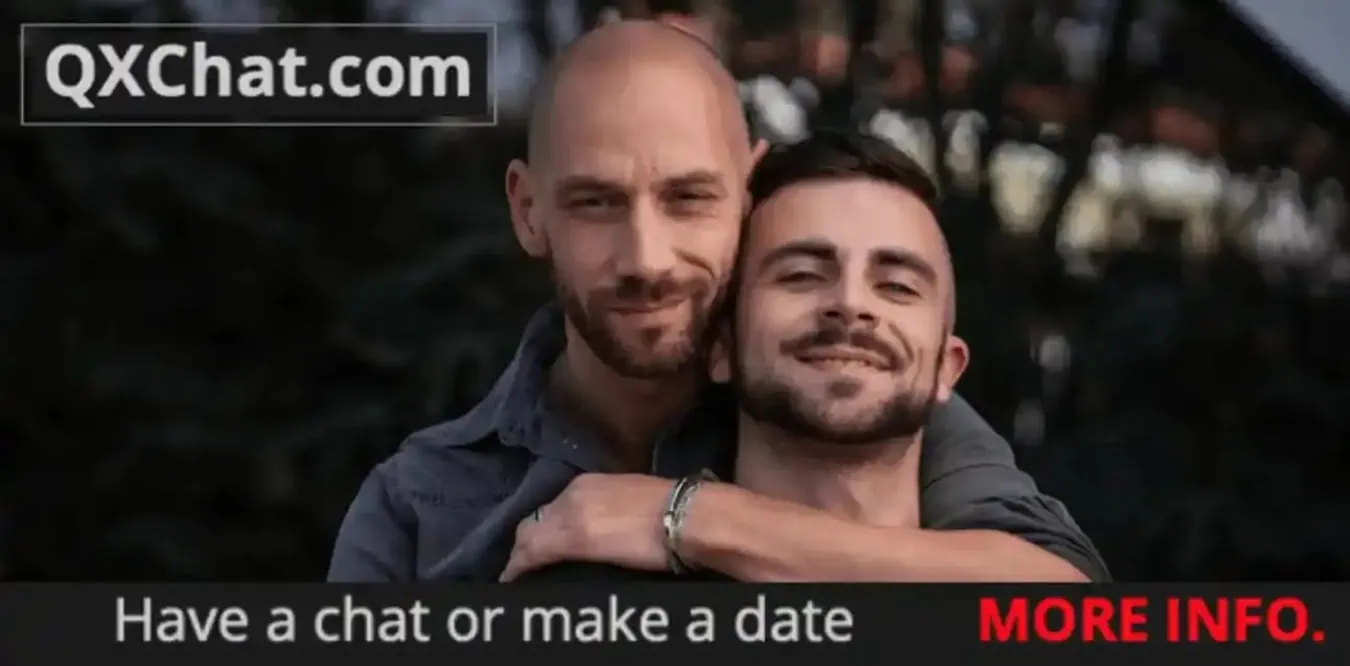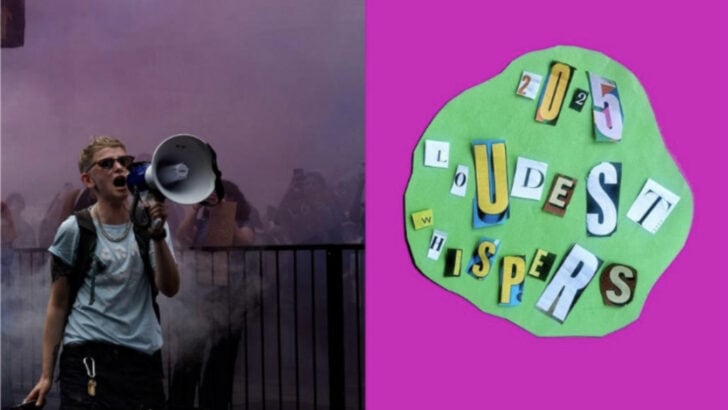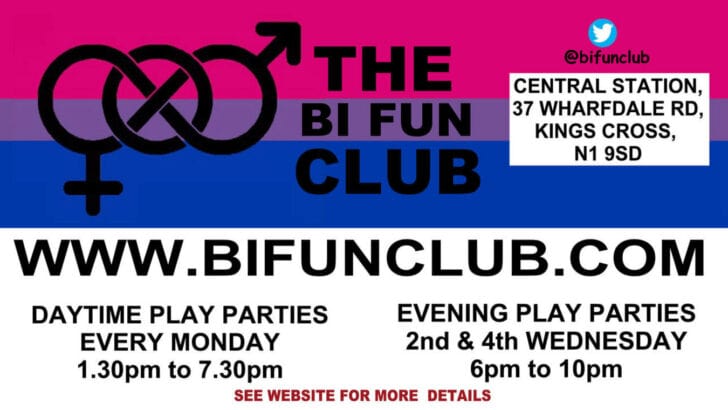Carolyn Cowan is a respected therapist, who works intimately with issues of gay men and chemsex
By Patrick Cash
Tell us a little about yourself.
What qualifies me on a certain level is I’m twenty-three years clean of drug and alcohol addiction. I went into recovery in 1996, the first women-only Sex Addicts Anonymous meetings in London in the 90s, and at the same time trained as a yoga teacher where one of the things I specialised in was addiction because of my own history. I found that yoga helped so much. And then I found I wasn’t getting enough certification so then I did a Psycho-Sexual and Relationships Therapy Post-Graduate Diploma, I’m in the middle of a post-graduate couples diploma and then next year I go onto a formal diploma to work with addiction recovery. I mainly work with addiction recovery, with drugs, alcohol and sexual compulsion, I’m one of a school of therapists in the UK that doesn’t believe in the model of sex addiction.
What’s the model of sex addiction?
It’s a model designed really in the 80s by a man named Patrick Carnes, he basically decided to make sexual compulsion an ‘addiction’, and therefore in that place, it was sort of during the AIDS crisis, to be able to then say that it’s a kind of compulsion, it’s a social disorder, it’s an inability to function appropriately sexually. In some ways you can say ‘well, I can’t help it, I’m an addict’, but also it’s a model that makes an enormous number of moral judgements on behaviour so it’s a difficult model to work with. I was actually diagnosed as a sex addict by Patrick Carnes in 1996, so I went into a treatment in America when I was 7 years sober, 6 years sober, because I wanted to deal with my own history of child abuse. Patrick Carnes was my therapist and he decided I was a sex addict. As I said in my talk the other night, I think that addiction is defined by suffering, it’s easy for me to look at somebody else and say ‘you’re an addict’ but that’s not appropriate: I’ve got friends who have been working and playing with chemsex as dominators, gay men, and they’re fine but I know other people who really aren’t fine and they lose their moral compass, and the definition of addiction comes when that changes to suffering. I had an interesting experience when I came back to London and worked with the model and celibacy contract, I wasn’t using chemsex, it wasn’t around then, I was doing other stuff sexually, but it was a really powerful experience that took a long time also to undo the judgements that were put upon me by the basic tenets of twelve-step recovery, saying that sex addiction is basically a moral disorder. So I finally got to the point where I don’t actually define myself as a sex addict, I will use the word ‘sex addict’ in inverted commas because I think that underneath sexual compulsion that leads to suffering there are quite a lot of issues including trauma, abandonment and neglect, including fear of intimacy, so that’s what I work with. It’s a long answer to a short question.
No, that’s great, it’s fantastic, thank you. I think it covers a couple of my points as to my subsequent questions already… But as a devil’s advocate question, why in your opinion is chemsex bad, if it is at all?
I think that people can do whatever they want. I don’t drink, people sit with me and say ‘do you mind if I drink?’ and I say ‘no, do whatever you like. I don’t care.’ It’s not that I don’t care in a horrible way, it’s not my deal to comment. But if somebody comes to me and says ‘I don’t know how to stop, I don’t know how not to do this, I find myself absolutely out of my comfort zone, I can’t get back, I’ve never felt so dark or disconnected’, now I have a problem. But I don’t make a judgement, if somebody’s happy doing what they’re doing, why is that a problem? I don’t have a moral judgement. I mean, my background is I come from the film industry, I used to be a body painter in the film industry and I was Freddie Mercury’s body painter for seven years. My first pop video that I did with him was ‘I Want to Break Free’ and I remember going with him to the opening night of Heaven in 1979, 1981, I’ve been involved in the gay sex scene in some way for a very, very long time, I’m very old! And there are no surprises. Nothing’s new. Yes, the use of drugs has changed but the behaviours aren’t any different in a way, I think what happens now is that the internet opens up the ability for everybody to judge it and therefore it becomes a focus of attention, it’s a bit like the focus now on paraphilias and sex abuse of adolescents and teenagers, the number of men who are being abused is as high as the number of women. What happens is that it creates a problem, the media attention creates a problem that, on a certain level, was quietly going along on its own, but the fascination then generates energy and creates much more of a problem. There are people who really are suffering, I think it takes a certain type of character to be able to carry yourself through really serious use of some of these drugs. I collapsed with drug use at the age of 31, I had such a bad drug problem I’d been using drugs for 20 years, I couldn’t go any further. It isn’t really so much about how badly the drugs will affect you as what happens to you mentally and spiritually and emotionally and what it is you’re trying to cover up. Because there’s nothing else that will cover it up and it doesn’t go away, the shadows just get darker.
I think that’s an interesting point, but what about the actual drugs being used, hasn’t there been a shift with mephedrone appearing?
Yes, there is a huge shift. And I think what’s different is the levels of intensity. I’m going to talk from what I think, and I’m not spouting current psycho thoughts. From what I think is an addictive person, as a person with an addictive personality, and a person who’s worked in addiction recovery for a very long time. What we were working with and dealing with and playing with when I was a drug addict – I was a drug addict, I was a crack addict 23 years ago – the intensity levels that we reached, what we did physically, emotionally, socially, I wasn’t into male gay sex but what I witnessed and experienced was the peak of intensity as it could be then. Very high peaks. Since then, think of the violence that we see, the experiences that we witness just in terms of the media, let alone Hollywood. We have become so inured to violence that our levels of tolerance have risen exponentially so now what we use to make ourselves feel good has risen exponentially. Admittedly the dopamine hit from a pipe of crack is very different from the dopamine hit from a pipe of crystal meth, but actually what we can look at pornographically, because of the internet, our dopamine hits have risen on many, many levels. We need stronger drugs to get us beyond what we’re used to.
Would you attribute this drug use then in some way to the changing of generations?
I think it is. One of the most shocking things I’ve seen in recent years is that man in a car who drove into an airport in Glasgow, burning. It was a very seminal moment where suddenly the newspapers had permission to publish stuff that had never previously been seen in the media. Now it’s just everywhere. How I work with addiction recovery, I think there’s substance addiction, you can be addicted to substance, like drugs and alcohol, and yes, G and mephedrone and all those things on the edges of that, but what they’re also dealing with are very high levels of intensity, which is process addiction. What I’m trying to say is that we have become hardened, we need more to ‘get us going’.
How does that apply to gay men’s drug abuse and their relationship to society, do you see any parallels or ties with that?
I think even though was all the deal about gay marriage and everyone should have the same rights, there is a marginalisation socially, that’s what we all experience, yes? An internalised and externalised homophobia. And intensity and basically the hormones that are involved in the acting out, that’s what I’m really interested in working with. The dopamine hit of crystal meth is something like 1200 times what you get off cocaine, so the high is phenomenal, the reward is phenomenal, it’s not necessary the high as much as what your body responds with internally with hormones. So all of it is about intensity and all of it is about looking for more and more intensity. All the pornography that is being produced at the moment is aimed at getting these really fast highs, aimed at giving you a thump – usually because a lot of what is being looked at is quite risky or judged or extreme visually, you’re working with cortisol, testosterone, adrenaline and then that drives the reward which is the dopamine. So one of the problems you have with these very extreme drug addictions is it’s very difficult to understand how you get high again, you’ve messed up your reward system and not only that, you’ve been getting high on a bed of negative emotions a lot of the time, although you can say that it’s pleasure, and you can perceive it as a pleasure, a lot of the time when you deal with the suffering – not making a judgement as everybody does – I know it’s really easy to sideline this into judgement – when it turns away from being a pleasure and really erotic, when it loses its charm and it’s no longer a real pleasure, it’s being done on a bed of cortisol, adrenaline and testosterone which is a very negatively charged experience. And the hardest thing about the recovery process is to come out of the attachment to the suffering and to find a way to lowering and getting more used to less dopamine.
How did you get involved with the #sobersex campaign?
I suggested it to David Stuart, who is a friend, and we were talking over lunch, and he’d just started the ‘sober sex’ thing, and I said let’s add a hashtag to it and let’s create the tribe. A line of people who use the internet, and if you use Twitter, if you use Facebook, and you use Instagram, you will start to drive an energy about this and eventually I will follow up with Grindr and see if I can persuade them to make it a tribe. But I think what would be great if your article could mention this, that it would be so cool if Grindr could make a tribe, and it would actually allow people to start opening up and the thing with sober sex is it can be quite frightening. Some people have never had sober sex, a lot of the comments that came with the picture that I posted up the other night were ‘only have sober sex in the morning’ post the usage. Sober sex is quite a frightening thing, sex without the unlimited, when you take away the inhibitions, that’s what the drugs do, they take away the inhibitions and the moral compass in a really interesting way, they take you outside of what you would normally consider that you would do, you lose the edges of what’s appropriate. Sober sex is quite frightening because suddenly there isn’t freedom, you’ve got to make choices, you’ve got to show yourself, ‘Into Me I See’, intimacy is a really scary thing for a lot of people and a lot of drug use and alcohol use allows for people to remove their inhibitions. So sober sex is a massive leap, it’s a big step.
Do you think that’s also associated with a societal shame that’s maybe attendant on gay sex?
I think it’s quite possible and also there’s a very real self-objectification in the male gay community. There is this horrible sort of body beautiful that transcends any personality to a degree, unless the personality’s very extreme and you know the work of ‘recovery’ in whatever form you choose to make it and particularly the work of recovery sexually is actually about ‘I’m okay as a person even if I don’t like my arse’. And I thought Simon was very brave the other night when he stood up to talk about that, because it’s an issue. I deal with a lot of gay men, such beautiful men, so beautiful and they’re so delightful and they’re in so much pain, and it’s so sad because the disconnect: the idea that the only value that they have is in their objectification of somebody else, but their own objectification, the way that they deny themselves and all they are is the visual and external.
Do you have any theories on why physical obsession has replaced the internal, the impetus has become more on the external?
Well, I mean, think about how we live. I’m a photographer, it’s one of the things I’ve done for many years, since I was 17 or so, to take photographs and the obsession now with the external image, but the lack of value, how fast images now are discarded – look how fast images go down your Facebook page – it takes no time.
Instagram?
It’s interesting that you say Instagram because Instagram is one of the few places where it actually holds the visuals in a way that I find very satisfying, whereas Twitter, you’re just descending into a dustbin of images and crap and web pages that mean nothing. So how do you stand up in this society if you believe and you follow and you’re part of this social networking society that nothing that you say or do or look like has any value because it doesn’t stay there? Because it just disappears down.
It would seem that it would make people want to put more of an impetus on the internal, if everything is so very fleeting in the external?
I think that’s a big step, I think it takes real courage. And that’s where something like yoga becomes interesting. You’ve got to be able to get comfortable with yourself. If you can learn with a good teacher, I know I’m a good teacher but there are lots of other good teachers out there, if you can learn to sit still and anxiously experience yourself outside of the speed of light and outside of the insanity of Facebook and Twitter and social media, and how tight’s my arse and how big are my muscles and all that stuff, there’s actually this extraordinarily exquisite reality that transcends any drug use. I mean I’ve been doing it for 23 years, I don’t have a need for any more apart from what is my personal daily practise. That takes time to get to, but go to a class with a good teacher. My plan is to set up a website and find teachers to teach classes, and support men in recovery. I already teach addiction recovery but I teach it in a broader way. But you can experience yourself, your internal self trying to make a relationship that you’re not constantly trying to escape. To become a sexual animal requires you to be constantly out there, constantly connecting, constantly looking, constantly needing something to come in to fulfil that need. When you sit still and you connect inside actually you are amazing, and you are this perfection, the experience is absolutely extraordinary, and it takes a moment, it might take several weeks, it might take several months, to become comfortable with yourself when you can and actually do start to discover there is more. And what’s more is amazing. You know I can stimulate the dopamine hit, if I was sitting with you now, I could give you the most phenomenal dopamine rush, I could teach you how to give yourself a dopamine rush within three minutes you couldn’t believe how high.
Okay, that sounds great.
And in about seven minutes I could take you into internal morphine supplies you had no idea you had.
Great. I’d be up for that, let’s organise something.
You know that is what I do – ‘show me how to get a better orgasm, show me how to change how I feel’. Okay, give me 3 minutes, I’ll change how you feel. You are completely malleable, you’ve just got to switch on that part that says ‘I choose to do it differently’.
Excellent. Penultimate question: with the gay guys coming to your classes, what do you hear as their personal main struggles with getting back to sober sex?
Erectile dysfunction. Fear of intimacy. Fear that they’ll never be loved. And self-loathing.
That seems a pretty substantial and comprehensive four.
Yeah, and that’s a terrible series of things but it’s also interesting to think about how men are portrayed at the moment. If I was a man, I would be outraged. Not just gay men, but what we socially see of men is killing and violence and anger. That is virtually all you see, killing, violence, sex and anger, we don’t really see anything else.
I suppose you could say a predominately negative façade is in some ways being perpetrated –
Well, it’s very extreme, the pressure. I mean I can say as a woman, I’m 54 years old, I have my children, I’ve done my time, I can say I’m the other side of it. I’m probably a crone on a certain level, that doesn’t mean I don’t think I’m a beautiful woman, but I don’t have the same pressure as a 20-year-old woman does. I can define myself, I’m comfortable in my lesbianism, I don’t need to be anything else, but if I was 25 or 20, the pressure to conform to some bizarre concept of what is a ‘woman’ is terrifying. And what is a woman is as ridiculously extreme as what is a man in the media view. It’s very sad. And I think it contributes to that self-objectification.
It is sad, and I think it’s fascinating, but possibly a huge topic for another conversation or debate… Finally, how would you best advise gay guys struggling with chems in their sex lives right now to move forward?
If they want to stop and it’s no longer a pleasure, then they need to find gay NA (Narcotics Anonymous) and AA (Alcoholics Anonymous) meetings. Certainly that’s a good place to start. There’s a very, very good gay meeting in Soho at 56 Dean Street, named the CODE Clinic. And that’s a meeting where they will be able to identify and they will find themselves with a group of men who are already dealing with this stuff. I think it’s definitely a choice if they want to go the 12-step route of SEA, of Sex Addiction. It’s not an easy route for a gay man because it makes a lot of judgements of behaviours, and I don’t think it’s appropriate. Because if you’ve got to the point where you’re very disconnected from intimacy and you really fear intimacy and you’re using a large amount of drugs to cover up how you feel emotionally then there’s deeper problems. And I would really support them in finding somebody like me or Dominic Davies from Pink Therapy, those routes, find therapists who are versed in alternate views of ‘sex addiction’. Because when you start working with the underlying behaviour, and you work with therapists who understand about shame, who understand about self-objectification, who understand about working with contracts: I work a lot with contracts. Working with anyone who’s struggling with addictions, I say ‘let’s make a contract, let’s agree what behaviours we’re going to let go of, and see what comes up. What emotions are you replacing? It’s a weekly thing.’ And my longterm goal is to start groups, a different kind of group to 12-step that really works to support these issues that are going on.
www.carolyncowan.com


















